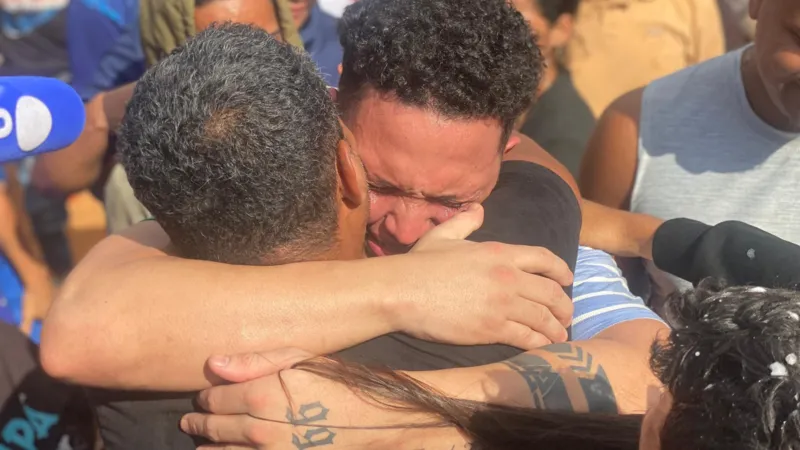Ethiopia’s army accused of committing war crimes in Amhara region
Human Rights Watch says Ethiopia’s army ‘summarily executed’ several dozen civilians in the country’s northwestern Amhara region in January.

Ethiopia’s army “summarily executed several dozen civilians” and committed other war crimes in the northwestern Amhara region earlier this year, Human Rights Watch (HRW) has said, as it called on the United Nations to launch an independent investigation.
The incident in the city of Merawi in late January was among the deadliest for civilians since fighting began between Ethiopian federal forces and Fano militia in the restive region in August, the New York-based rights group said in a report on Thursday.
“Civilians are once again bearing the brunt of an abusive army operating with impunity,” Laetitia Bader, deputy Africa director at HRW, said.
“The Ethiopian armed forces’ brutal killings of civilians in Amhara undercut government claims that it’s trying to bring law and order to the region.”
There was no immediate comment by the Ethiopian government or the army, but a separate investigation conducted by the state-appointed Ethiopian Human Rights Commission estimated that at least 45 people were killed by government forces in Merawi.
HRW said it was unable to determine the total number of civilian killings in Merawi, adding that some accounts put the figure to more than 80.
More than a dozen witnesses, including victims and their family members, told the rights groups about the alleged abuses carried out by the army in the city.
HRW said it had also analysed and verified videos posted to social media in the aftermath of the January 29 attack and examined satellite imagery that corroborated witness accounts.
Merawi, Ethiopia map
‘Pillage’ of civilian properties
HRW urged the UN High Commissioner for Human Rights to lead the investigation into the alleged abuses.
It also called on the African Union to suspend all deployments of Ethiopian federal forces to peacekeeping missions until “commanders responsible for grave abuses are held accountable”.
“Under international humanitarian law applicable to the armed conflict in Amhara, the deliberate killing or mistreatment of civilians, and looting and pillage of civilian property are prohibited and may be prosecuted as war crimes,” HRW said.
Testimonies collected by HRW revealed that after Fano fighters withdrew from Merawi following an attack on Ethiopian forces, the soldiers shot civilians on the streets as well as during house raids over a six-hour period.
“The soldiers also pillaged and destroyed civilian property,” HRW said.
Several residents also told HRW that soldiers remaining in the town also refused to allow the community to collect and bury those who were killed.
Bader said the Ethiopian government’s “failure” to ensure accountability for abuses “contributes to ongoing cycles of violence and impunity”.
In early February, Ethiopia’s parliament extended a state of emergency introduced in August 2023 in Amhara, the country’s second most populous region.
Fano fighters took part in a week of violent protests across Amhara in April last year after Prime Minister Abiy Ahmed ordered that security forces from Ethiopia’s 11 regions be integrated into the police or national army.
Protesters felt the order was meant to weaken Amhara – the country’s second-biggest region. The federal government denied this.
-al jazeera






